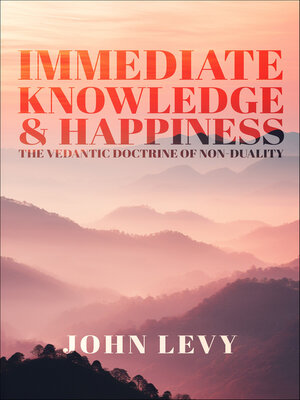
Sign up to save your library
With an OverDrive account, you can save your favorite libraries for at-a-glance information about availability. Find out more about OverDrive accounts.
Find this title in Libby, the library reading app by OverDrive.



Search for a digital library with this title
Title found at these libraries:
| Library Name | Distance |
|---|---|
| Loading... |
In this classic writing on non-duality, John Levy addresses the question which has always puzzled humankind : 'What am I?'
Levy enlists the aid of the essential doctrine of Vedanta, 'the end of knowledge,' and its highest aspect of Advaita, or Non-Duality:
"When I say I own a house I don't imply that I am a house. On the contrary, I cannot possibly be one. The sense of possessing a house is in no way different from the sense of possessing a mind or a body. A body, like a house, is an object, and so is a mind. But I am the, possessor of the object and therefore not the object itself, in this case the body or the mind. In other words, if l possess a body and a mind, I am clearly other than the body or the mind.
If man is not the body and mind he believes himself to be, what is he? If you rest in consciousness, you will at once be happy and free from bondage."
Levy enlists the aid of the essential doctrine of Vedanta, 'the end of knowledge,' and its highest aspect of Advaita, or Non-Duality:
"When I say I own a house I don't imply that I am a house. On the contrary, I cannot possibly be one. The sense of possessing a house is in no way different from the sense of possessing a mind or a body. A body, like a house, is an object, and so is a mind. But I am the, possessor of the object and therefore not the object itself, in this case the body or the mind. In other words, if l possess a body and a mind, I am clearly other than the body or the mind.
If man is not the body and mind he believes himself to be, what is he? If you rest in consciousness, you will at once be happy and free from bondage."







